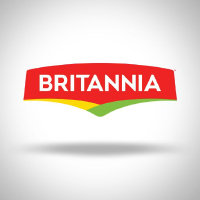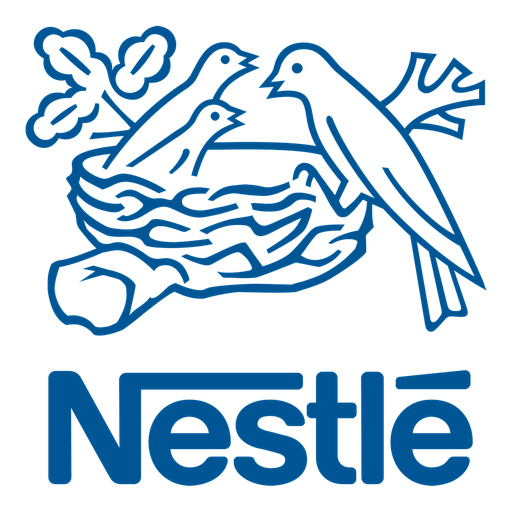
Patanjali Foods Ltd
NSE:PATANJALI


| US |

|
Johnson & Johnson
NYSE:JNJ
|
Pharmaceuticals
|
| US |

|
Berkshire Hathaway Inc
NYSE:BRK.A
|
Financial Services
|
| US |

|
Bank of America Corp
NYSE:BAC
|
Banking
|
| US |

|
Mastercard Inc
NYSE:MA
|
Technology
|
| US |

|
UnitedHealth Group Inc
NYSE:UNH
|
Health Care
|
| US |

|
Exxon Mobil Corp
NYSE:XOM
|
Energy
|
| US |

|
Pfizer Inc
NYSE:PFE
|
Pharmaceuticals
|
| US |

|
Palantir Technologies Inc
NYSE:PLTR
|
Technology
|
| US |

|
Nike Inc
NYSE:NKE
|
Textiles, Apparel & Luxury Goods
|
| US |

|
Visa Inc
NYSE:V
|
Technology
|
| CN |

|
Alibaba Group Holding Ltd
NYSE:BABA
|
Retail
|
| US |

|
3M Co
NYSE:MMM
|
Industrial Conglomerates
|
| US |

|
JPMorgan Chase & Co
NYSE:JPM
|
Banking
|
| US |

|
Coca-Cola Co
NYSE:KO
|
Beverages
|
| US |

|
Walmart Inc
NYSE:WMT
|
Retail
|
| US |

|
Verizon Communications Inc
NYSE:VZ
|
Telecommunication
|
Utilize notes to systematically review your investment decisions. By reflecting on past outcomes, you can discern effective strategies and identify those that underperformed. This continuous feedback loop enables you to adapt and refine your approach, optimizing for future success.
Each note serves as a learning point, offering insights into your decision-making processes. Over time, you'll accumulate a personalized database of knowledge, enhancing your ability to make informed decisions quickly and effectively.
With a comprehensive record of your investment history at your fingertips, you can compare current opportunities against past experiences. This not only bolsters your confidence but also ensures that each decision is grounded in a well-documented rationale.
Do you really want to delete this note?
This action cannot be undone.

| 52 Week Range |
1 244.2
1 969.45
|
| Price Target |
|
We'll email you a reminder when the closing price reaches INR.
Choose the stock you wish to monitor with a price alert.

|
Johnson & Johnson
NYSE:JNJ
|
US |

|
Berkshire Hathaway Inc
NYSE:BRK.A
|
US |

|
Bank of America Corp
NYSE:BAC
|
US |

|
Mastercard Inc
NYSE:MA
|
US |

|
UnitedHealth Group Inc
NYSE:UNH
|
US |

|
Exxon Mobil Corp
NYSE:XOM
|
US |

|
Pfizer Inc
NYSE:PFE
|
US |

|
Palantir Technologies Inc
NYSE:PLTR
|
US |

|
Nike Inc
NYSE:NKE
|
US |

|
Visa Inc
NYSE:V
|
US |

|
Alibaba Group Holding Ltd
NYSE:BABA
|
CN |

|
3M Co
NYSE:MMM
|
US |

|
JPMorgan Chase & Co
NYSE:JPM
|
US |

|
Coca-Cola Co
NYSE:KO
|
US |

|
Walmart Inc
NYSE:WMT
|
US |

|
Verizon Communications Inc
NYSE:VZ
|
US |
This alert will be permanently deleted.
 Patanjali Foods Ltd
Patanjali Foods Ltd
 Patanjali Foods Ltd
Short-Term Debt
Patanjali Foods Ltd
Short-Term Debt
Patanjali Foods Ltd
Short-Term Debt Peer Comparison
Competitors Analysis
Latest Figures & CAGR of Competitors

| Company | Short-Term Debt | CAGR 3Y | CAGR 5Y | CAGR 10Y | ||
|---|---|---|---|---|---|---|

|
Patanjali Foods Ltd
NSE:PATANJALI
|
Short-Term Debt
₹10.5B
|
CAGR 3-Years
20%
|
CAGR 5-Years
-35%
|
CAGR 10-Years
N/A
|
|

|
Tata Consumer Products Ltd
NSE:TATACONSUM
|
Short-Term Debt
₹0
|
CAGR 3-Years
N/A
|
CAGR 5-Years
N/A
|
CAGR 10-Years
N/A
|
|

|
Britannia Industries Ltd
NSE:BRITANNIA
|
Short-Term Debt
₹0
|
CAGR 3-Years
N/A
|
CAGR 5-Years
N/A
|
CAGR 10-Years
N/A
|
|

|
Adani Wilmar Ltd
NSE:AWL
|
Short-Term Debt
₹24.2B
|
CAGR 3-Years
59%
|
CAGR 5-Years
25%
|
CAGR 10-Years
N/A
|
|

|
Marico Ltd
NSE:MARICO
|
Short-Term Debt
₹3.8B
|
CAGR 3-Years
7%
|
CAGR 5-Years
2%
|
CAGR 10-Years
7%
|
|

|
Nestle India Ltd
NSE:NESTLEIND
|
Short-Term Debt
₹0
|
CAGR 3-Years
N/A
|
CAGR 5-Years
N/A
|
CAGR 10-Years
N/A
|
|
Patanjali Foods Ltd
Glance View
Patanjali Foods Ltd., deeply rooted in the Indian ethos, has emerged as a compelling story of blending tradition with modernity to carve a niche in the competitive FMCG sector. Founded under the umbrella of the renowned Patanjali Ayurved, it started with a mission to bring the ancient wisdom of Ayurveda into the everyday lives of millions. The company's operations span across a diversified product range, including edible oils, home care products, nutrition and supplements, and personal care items. The secret sauce behind its success lies in leveraging a distinct blend of natural ingredients and traditional recipes to create products that resonate with a health-conscious consumer base. Patanjali's extensive distribution network, which penetrates both urban and rural landscapes, ensures that its products are accessible across the vast Indian subcontinent, thus forming a crucial backbone to its growth. The financial tapestry of Patanjali Foods is woven through a strategic focus on high-demand categories combined with an ethos-driven marketing approach. By riding the wave of the 'back to nature' consumer trend, the company has tapped into a loyal customer segment that values intrinsic and organic quality over conventional alternatives. This strategy has not only filled their coffers through robust sales margins on a diverse portfolio but has also led to substantive growth through continuous brand extension into newer categories. Additionally, their emphasis on vertical integration, from raw material procurement to production and distribution, helps to streamline costs and bolster efficiency. As a result, Patanjali Foods thrives in maximizing profitability while being anchored in its core values of health and wellness, reflecting a harmonious balance of commerce and ideology.

See Also
What is Patanjali Foods Ltd's Short-Term Debt?
Short-Term Debt
10.5B
INR
Based on the financial report for Mar 31, 2024, Patanjali Foods Ltd's Short-Term Debt amounts to 10.5B INR.
What is Patanjali Foods Ltd's Short-Term Debt growth rate?
Short-Term Debt CAGR 5Y
-35%
Over the last year, the Short-Term Debt growth was -24%. The average annual Short-Term Debt growth rates for Patanjali Foods Ltd have been 20% over the past three years , -35% over the past five years .






























 You don't have any saved screeners yet
You don't have any saved screeners yet